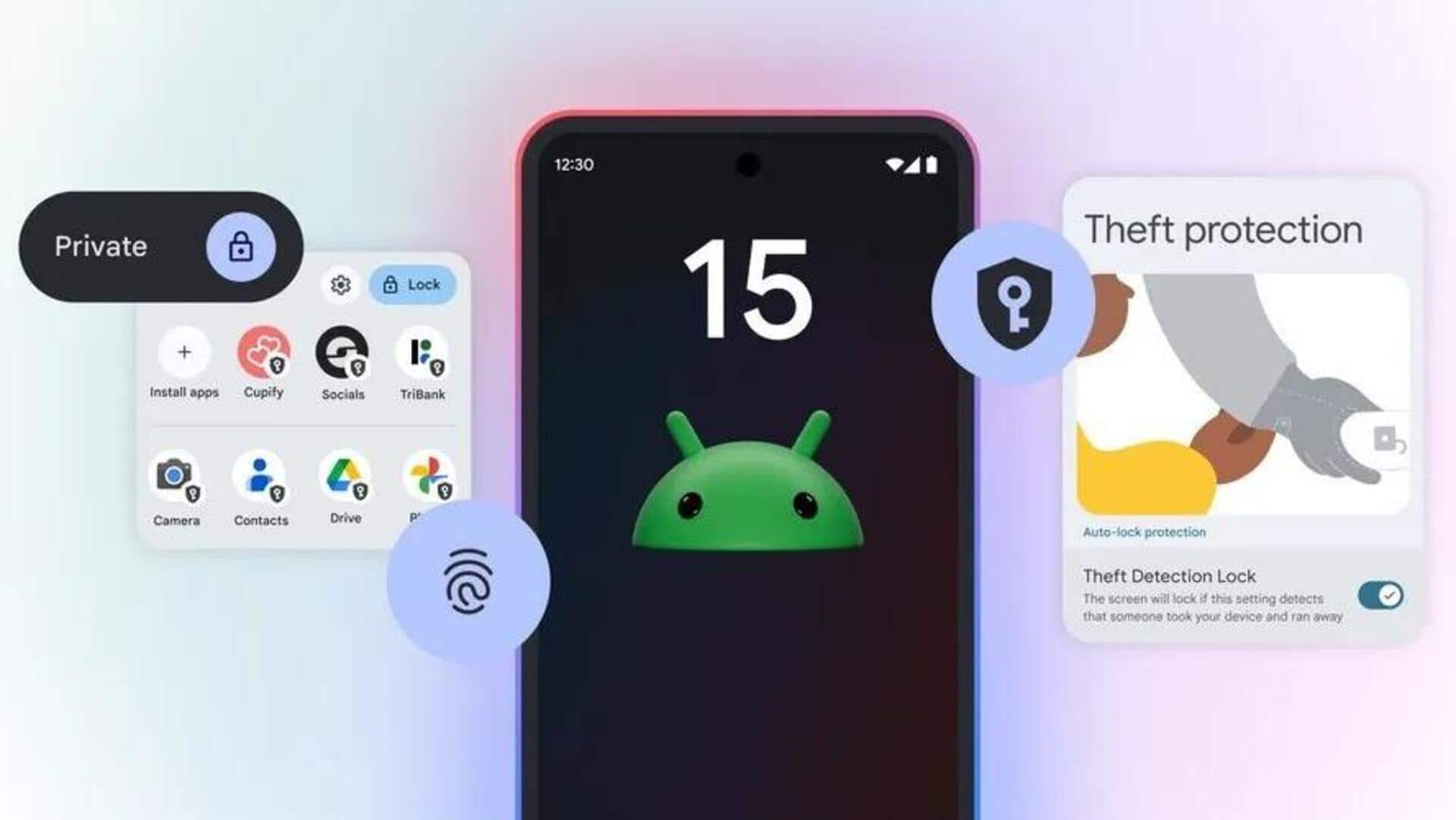
Android 15's standout features are its enhanced security, privacy measures
What's the story
Google has begun rolling out its latest operating system, Android 15.
The update is available for Pixel devices at the moment and will be brought to other Android smartphones in due course.
The new release is all about improving user privacy and security, with some noteworthy features to defend against potential threats and unauthorized access.
Here are the key security and privacy upgrades in Android 15.
Enhanced privacy
'Private Space' for apps
One of the biggest highlights of Android 15 is the addition of a "Private Space" for apps.
With this, you can lock sensitive apps, such as banking and shopping platforms, with an extra layer of protection, such as a separate PIN code, password, biometric check, or optional Google account.
Apps kept in this space won't show up in recent apps, notifications, or settings unless you provide additional authentication.
OTP protection
Improved security of OTP codes
Android 15 has also beefed up the security of one-time passcodes (OTPs).
A new permission prevents apps from reading notification text containing OTPs, blocking potential leaks to other apps.
This also conceals usernames, passwords, and credit card numbers when screen sharing.
While this could stop some apps from automatically pasting expected codes, it's a trade-off that makes everything more secure.
Anti-theft measures
AI-powered theft detection lock
To combat the changing tactics of thieves, Android 15 has added an AI-powered Theft Detection Lock.
The feature leverages on-device machine learning (ML) to analyze different device signals and figure out if a device has been snatched. If the system detects theft, it automatically locks the phone.
Other security measures include an Offline Device Lock that activates if the internet connection is disabled on your phone and Remote Lock feature to lock your device with phone number and security challenge.
AI integration
Google Play Protect boosted with AI
In another major upgrade, Android 15 has integrated on-device AI into Google Play Protect.
The feature will analyze additional behavioral signals related to the use of sensitive permissions and interactions with other apps and services.
If any suspicious activity is detected, users can send the suspect app's data to Google for further analysis, enhancing overall device security.
Network upgrades
Alerting users about unencrypted cellular connection
Your phone constantly communicates over the air, making it vulnerable.
Android 15 addresses this by alerting users when they're on an unencrypted cellular connection, helping prevent interception of traffic or SMS messages.
It can also notify "at-risk users," such as journalists or dissidents, about potential false cellular base stations.
However, these features aren't enabled by default; they need OEM integration and compatible hardware, which Google anticipates will be adopted in the coming years.